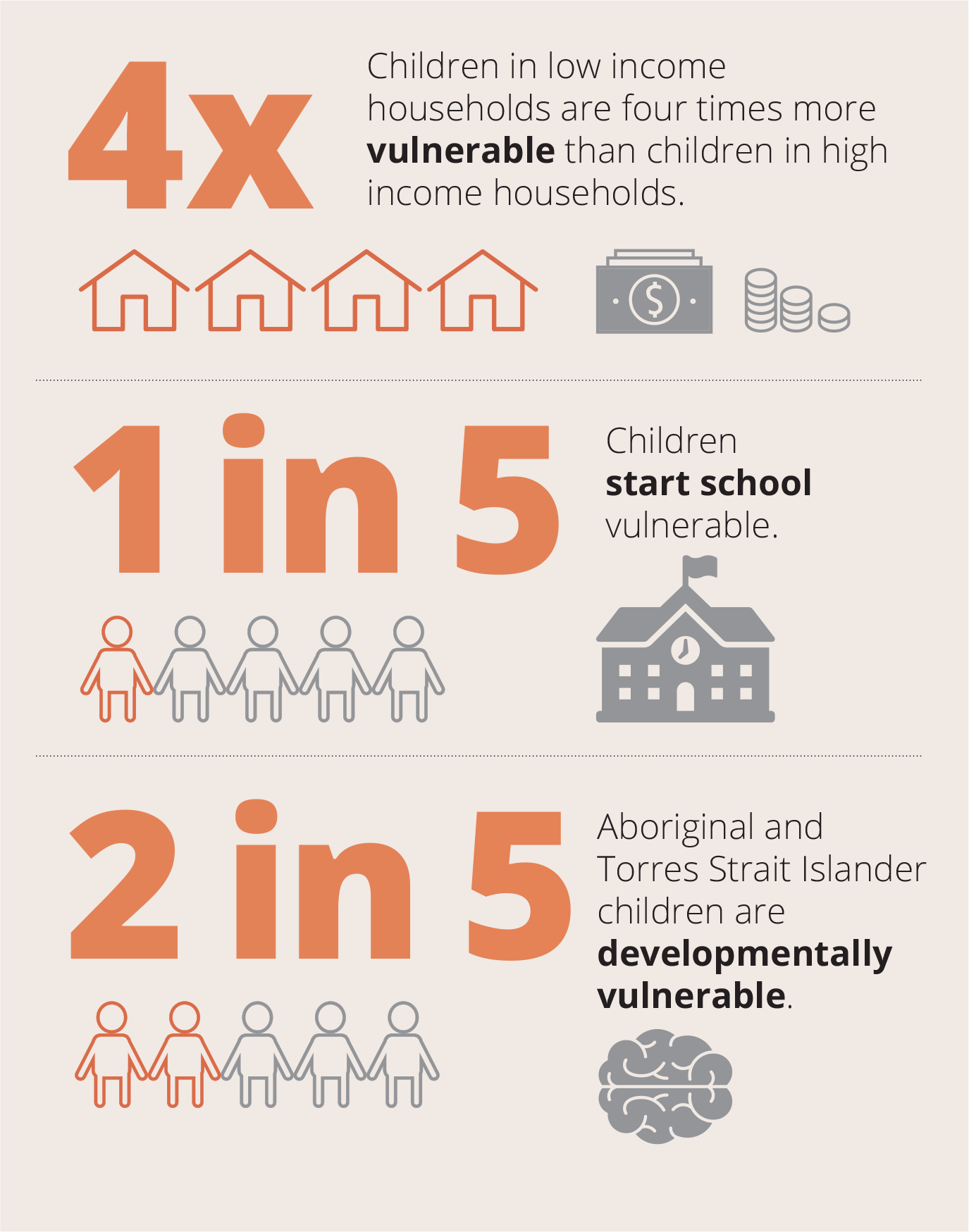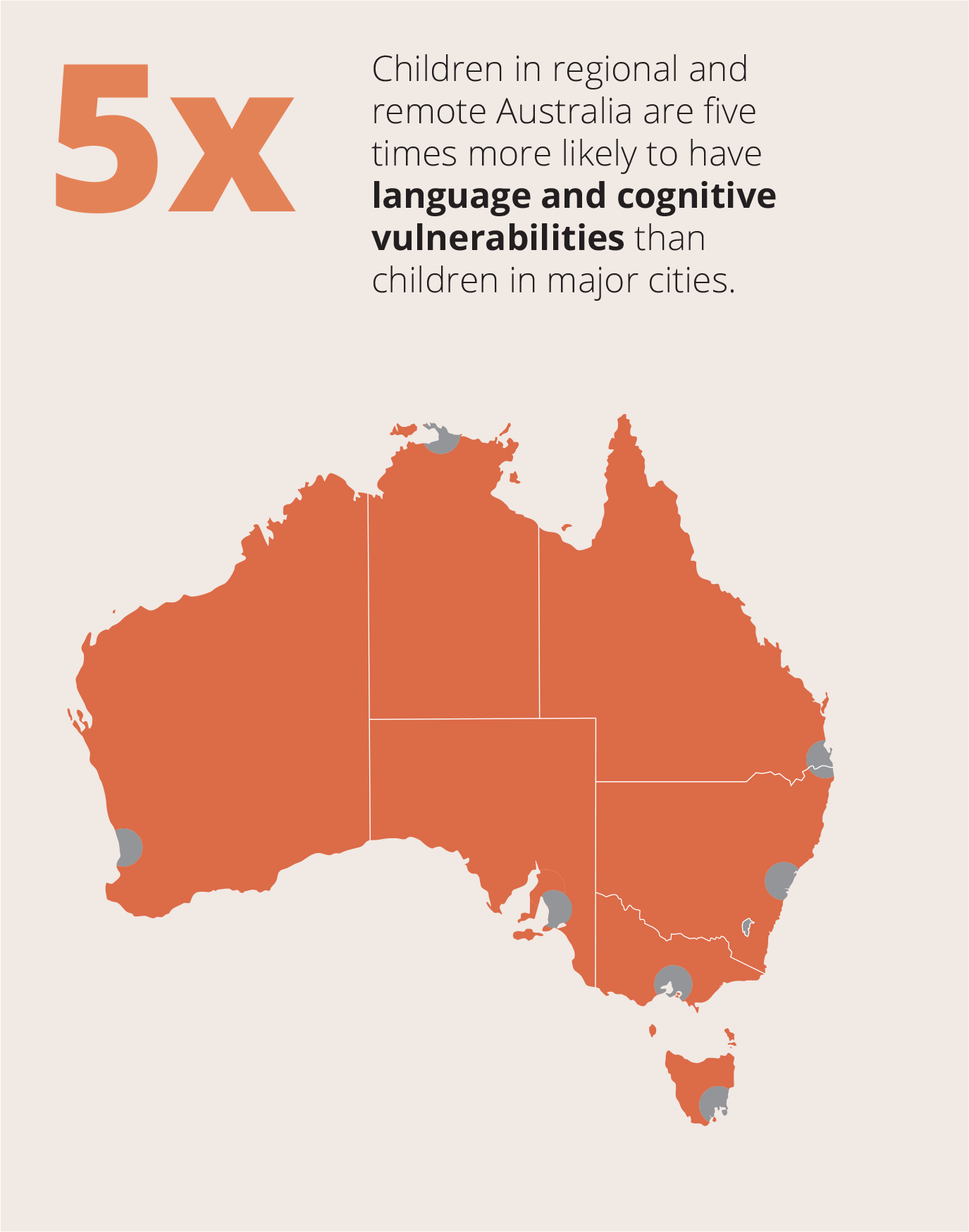Addressing disadvantage
In Australia, one in five children starts school developmentally vulnerable, increasing their lifelong poverty risk.
Quality early childhood education and care (ECEC) can set children up for life, building their vital social and emotional skills and rapid brain development.
The Front Project works across Australia’s ECEC to address disadvantage through supporting early learning professionals, system-wide collaboration, research, and advocacy to influence lasting change and reduce disadvantage.
Disadvantage can be reduced by improving access to early childhood education


Disadvantage can be reduced by improving access to early childhood education
Every year, more than 60,000 Australian children, or one in five, start school with significant vulnerabilities. The risk is higher for children from regional and remote communities and low-income households.
When starting school, these children have not yet developed the foundational capabilities associated with early learning such as communication, relationship building, understanding instructions, regulating emotions, foundational literacy and math skills.
These vulnerabilities can exist for a variety of reasons, including learning and development challenges, experiences of trauma, intergenerational disadvantage or simply an inability to access quality ECEC.
Through our work, the Front Project aims to remove these obstacles so all children across Australia can receive equal early learning opportunities.
